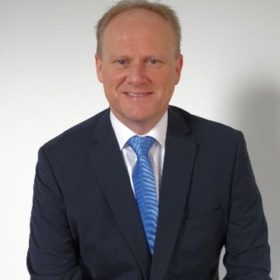Join this upcoming pv magazine Webinar to learn about the outlook for floating PV (FPV) and challenges facing investors; the TÜV 2Pfg 2750 standard, and the first certified water-resistant PV DC cable according to the new standard.
Waterproofed: new cable testing, standard for FPV
While floating PV (FPV) arrays remain only a drop in the bucket of global installations at present, the application is maturing fast and development activity accelerating. The Solar Energy Research Institute of Singapore (SERIS) reports that cumulative FPV installations went past 2.5 GW in 2020. Furthermore, market analysts note that that FPV must be installed at scale if major economies are going to achieve their emission-reductions objectives.
Despite this promise, however, standard solar components, designed and tested for terrestrial applications, are commonly used in FPV arrays – potentially exposing project developers and investors to a heightened risk of failure. Water ingress in any solar component is problematic and for DC cables it can lead to major power losses and potential safety hazards.
In response to the challenge, testing and certification body TÜV Rheinland has developed a new testing regime and standard to qualify cables for FPV applications. The 2Pfg 2750 standard, published last month, can give EPCs and FPV project developers the confidence they need to install solar on water.
Join this upcoming pv magazine Webinar to learn about the outlook for FPV and challenges facing investors; the TÜV 2Pfg 2750 standard, and the first certified water-resistant PV DC cable according to the new standard.
Speakers from TÜV Rheinland, SERIS, and Studer Cables will deliver presentations and take your questions during the free webinar. You can enter your questions at registrations or interact live during the event.
SERIS will report on cable reliability considerations and electrical issues encountered during the past 5 years of operation and maintenance (O&M) of the 1 MWp floating PV testbed in Singapore, which consists of ten different types of floating PV systems. The presentation will discuss the challenges for cable management arising from the constantly moving pontoons, which can lead to cables being submerged in water, accelerated corrosion, breakage, and insulation faults.
TÜV Rheinland will provide the background to the new standard, its enhanced testing regime, and how the standard can be applied by project developers. Studer Cables will reveal how the company’s new BETAflam Solar 125 flex WR 1500 cable range is designed to meet the challenge of the new standard and FPV applications more generally.
The free webinar will include detailed, technical presentations along with interactive Q&A sessions – providing attendees with the opportunity to put their questions to the speakers and become a part of the discussion.
Studies have shown that if FPV was installed on only 1% of the man-made reservoirs globally, it would result in 400 GW of solar generating capacity. The potential for FPV is huge and its advantages numerous. However, if its potential is to be realized, standardization of key components will be required to deliver an LCOE that is comparable with terrestrial applications and give developers and investors the confidence they require.
Jonathan Gifford from pv magazine will be the moderator of this webinar. Questions can be submitted beforehand or during the webinar through a chat window.
Registration for this pv magazine Webinar is free of charge.



